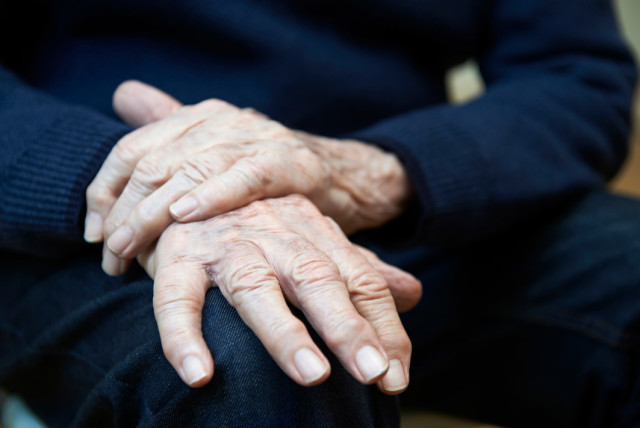Belgian breakthrough: Stool transplant shows promise for improving symptoms of Parkinson's disease

Stool transplant shows promise for improving symptoms of Parkinson’s disease.
About 10 million people around the world suffer from Parkinson’s disease (PD), the neurogenerative, incurable disorder whose motoric symptoms include balance problems, stiffness, and tremors and whose non-motor symptoms include the loss of smell, constipation, and rapid-eye-movement sleep disturbances.
It often develops up to 20 years before diagnosis when the symptoms are apparent. The number of sufferers is expected to double by 2025.
Now, a groundbreaking clinical study conducted by researchers at Ghent University Hospital in Belgium has shown the potential of fecal microbiota transplantation (FMT) to improve symptoms in patients with PD.
The research provides promising evidence that FMT could be a valuable new treatment for this debilitating disorder.
It has just been published in the journal eClinicalMedicine under the title “Safety and efficacy of fecal microbiota transplantation in patients with mild to moderate Parkinson’s disease.”
In Parkinson’s disease, a protein called alpha-synuclein misfolds and clumps together. Those clumps damage dopamine-producing nerve cells in the brain, leading to the typical Parkinson’s symptoms.
Existing treatments – mostly medications that replace dopamine – often have side effects and lose effectiveness over time.
The protein clumps are believed to be formed in the gut wall at a very early stage of the disease, from which they reach the brain cells via the vagus nerve that connects the gut and the brain.
Gut bacteria can influence this process. Indeed, emerging research suggests a surprising link between PD and the gut microbiome, the trillions of bacteria residing in our intestines.
PD patients often have an altered gut microbiome compared to healthy individuals, and they frequently show more intestinal inflammation and a disrupted intestinal barrier.
The team wanted to investigate whether a fecal microbiota transplant (FMT) with healthy gut bacteria from a donor could have a significant impact on the evolution of PD symptoms over one year.
The clinical study showed that after 12 months, the actively treated group showed significantly more improvement in motor symptoms than the placebo group.
Many hospitals have successfully used fecal transplantation to treat a gastrointestinal infection called Clostridium difficile.
The clinical study, named the GUT-PARFECT trial, was conducted at Ghent University Hospital. It is a single-center, randomized, double-blind, and placebo-controlled trial.
It recruited participants with early-stage PD and healthy donors who donated their stools. All participants with PD received the stool through a tube that was inserted through the nose and advanced into the small intestine to deliver the mixture directly there.
“Our results are really encouraging!” said Prof. Arnout Bruggeman, the study’s first author. “After 12, participants who received the healthy donor stool transplant showed a significant improvement in their motor score, the most important measure for Parkinson's symptoms.”
The improvement in motor symptoms became even more pronounced between the sixth and 12th month after the transplant, suggesting a potential long-lasting effect.
Additionally, participants experienced less constipation. He said more research is needed to determine whether this treatment also slows the progression of the disease.
“Because there were major questions about the feasibility at the start of the study, financing this research was no easy task,” added Prof. Patrick Santens.
“This research was only possible thanks to the support of patient organizations and the willingness of participants to undergo the rather invasive procedures.”
FMT can be a valuable new treatment for Parkinson's
“Our study provides promising hints that FMT can be a valuable new treatment for Parkinson's disease,” said Prof. Roosmarijn Vandenbroucke, who was also on the team.
“More research is needed, but it offers a potentially safe, effective, and cost-effective way to improve symptoms and quality of life for millions of people with PD.”
“Our next step is to obtain funding to determine which bacteria have a positive influence. This could lead to developing a ‘bacterial pill' or other targeted therapy that could replace FMT in the future,” concluded Prof. Debby Laukens.
Jerusalem Post Store
`; document.getElementById("linkPremium").innerHTML = cont; var divWithLink = document.getElementById("premium-link"); if (divWithLink !== null && divWithLink !== 'undefined') { divWithLink.style.border = "solid 1px #cb0f3e"; divWithLink.style.textAlign = "center"; divWithLink.style.marginBottom = "15px"; divWithLink.style.marginTop = "15px"; divWithLink.style.width = "100%"; divWithLink.style.backgroundColor = "#122952"; divWithLink.style.color = "#ffffff"; divWithLink.style.lineHeight = "1.5"; } } (function (v, i) { });

